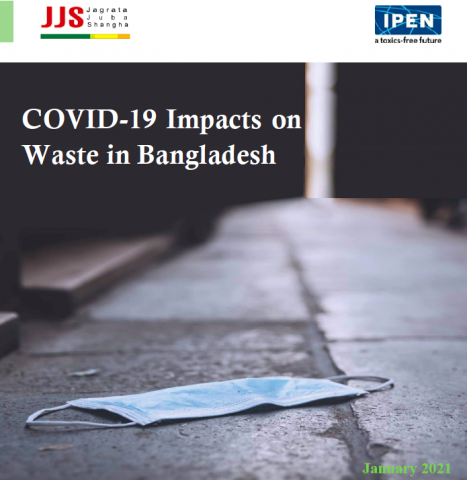Bangladesh: COVID 19 Chemicals and Waste

As with many countries around the world, during the COVID-19 lockdown periods in Bangladesh, there was an increase in hazardous medical waste production. The increase in waste volume pressured the waste management infrastructures, which have proven insufficient to accommodate the unexpected increase. Furthermore,resurgence of single use plastic posed a serious threat for health and the environment. In the suburban areas, personal protection equipment (PPE), caps, and gloves were discarded into household bins, putting waste collectors' health and life at risk.
For this project, Jagrata Juba Shangha (JJS) NGO analyzed the total amount of medical waste generated in given periods, and conducted an extensive review of information related to national waste management practices and needs.
In addition to carrying out a webinar where research results were shared with representatives from academic institutions, city authorities, representatives from medical hospitals, NGO personnel and other stakeholders related to plastic waste management, JJS also produced some recommendations to facilitate better waste management, such as, amongst others:
- Proper implementation of the 2008 Medical Waste Management and Processing Rules;
- Adjustment and operation of recycling facilities;
- Promotion of reusable PPE with adequate safety measures; and
- Cooperation between city authorities, relevant actors, local NGOs and local waste staff, along with plastic manufacturers, to reduce plastic waste.
This report relates to Sustainable Development Goals 3, 5, 6, 8, 12, 13, 14 and 15.
Special thanks to IPEN's South Asia Regional Coordinator Tripti Arora and South Asia Regional Hub Toxics Link for their important contributions to the development and finalization of the project.
| Attachment | Size |
|---|---|
| 3.77 MB |
